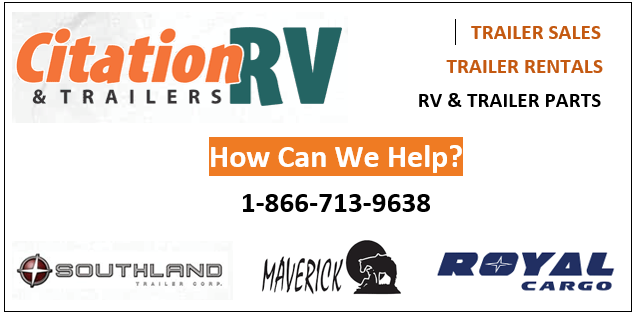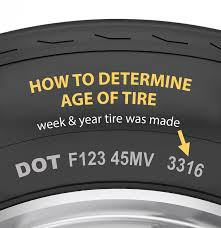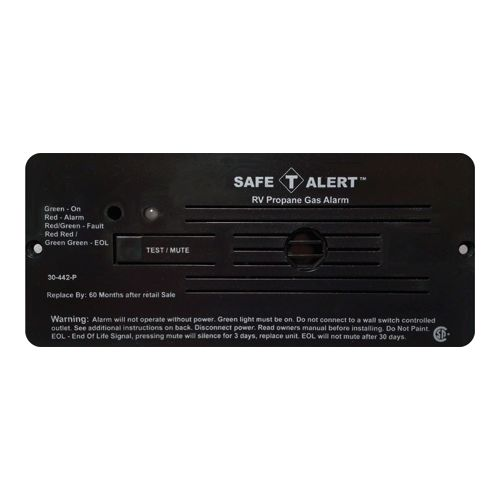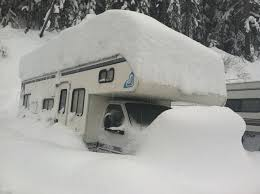Monthly & Yearly RV Maintenance Checklist
Thanks for checking out our RV maintenance checklist with tips and tricks on RV care courtesy of Citation RV in Kamloops BC.


Seasonal RV Maintenance
Most RV owners are familiar with the seasonal RV maintenance checklist like:- RV battery maintenance
- Checking seals
- Thoroughly cleaning and winterizing the RV in the fall
- De-winterizing it in the spring, and RV appliance maintenance
To care for and maintain your RV properly, be sure to keep a detailed log of all inspections and service work.
There are two other RV maintenance checklists that you should consider including:
There are two other RV maintenance checklists that you should consider including:
- Monthly RV Maintenance Checklist
- Yearly RV Maintenance Checklist
Monthly RV Maintenance and Repair Tips
We recommend that you perform monthly maintenance on your RV. Here’s a checklist on what you should keep an eye on:- Checking exterior sealants on RV body and roof
- Running your generator at least 2-hours each month
- Topping up your batteries with distilled water
- Checking & replacing cracked vent lids, caps, and skylights
- Checking & lubricating locks, leveling jacks, and step hinges
RV Annual Maintenance and Repair Tips
At least once a year, we recommend the following RV maintenance checklist:- Have bearings repacked and brakes serviced
- Get your propane tanks inspected
- Re-seal all key areas of the RV
- Do AC, furnace and hot water heater maintenance and inspections annually
- Check your safety equipment including expiry dates on fire extinguishers plus smoke alarms and CO2 detectors
Our Top 7 RV Maintenance and Repair Tips
Below are what we consider to be the most important items on your RV maintenance checklist. Doing these regularly will help keep your RV maintenance costs at a minimum.1. Know When to Replace Tires
Prior to any road trip, always check your tires for tire pressure and wear and tear. RV tire maintenance means checking for cracks, cuts, and bulges plus flat spots, low tread, and uneven wear.Over time, rubber tires will deteriorate and need to be replaced even when they seem to still have good tread on them. Your tires will have a code on them that tells you the week and year the tire was manufactured (see image). A good general rule is to replace any tire that is more than 5 years old.
2. Repack Your Bearings Regularly
Most manufacturers recommend that you repack your bearings at least once a year or at every 19,000-km (11,800-miles), and for good reason.
The weight of your RV is riding on the wheel bearings, so it is imperative to keep them well lubricated. Brakes also tend to heat up, which can speed up the process of how fast your bearing grease breaks down.When you repack the bearings, you also have the opportunity to inspect and address the condition of your tires, brakes, and brake drums.
At Citation RV, we have all the parts and service expertise you need to have your bearings, brakes, and tires inspected and serviced. Book a Service Appointment.
3. Check Your Gas Detectors Regularly
Whether battery operated or wired in, your RV’s propane, smoke alarm, and carbon monoxide (Co2) detectors must all work properly. They are required safety features that could very well save your life someday.Be sure to routinely check these safety devices to ensure they are all working properly and that none of them have expired. Check yearly and definitely check prior to each trip. They don’t last forever. Most have only a 5-to-10-year life span (check the label) and should be replaced once they are past their due date. Also, check your fire extinguishers!
NOTE: Detectors and alarms for residential home use cannot be used in RVs, so make sure that all new replacement safety devices are approved for RV use.
4. Switch Over to LED Lights
Not all LED lights are equal. They can vary in both price and quality.
Citation RV carries ESP LED light bulbs that come with a 10-year warranty. LED lights use a lot less energy, up to 90% less. LED light brightness is measured in lumens instead of Watts and are available in either warm yellow light or cool natural light.
Here are 3 steps you can follow to switch over to LED Lights.
Citation RV carries ESP LED light bulbs that come with a 10-year warranty. LED lights use a lot less energy, up to 90% less. LED light brightness is measured in lumens instead of Watts and are available in either warm yellow light or cool natural light.
Here are 3 steps you can follow to switch over to LED Lights.
- Decide which light fixtures you want to update with LED lights
- Check the light base for sizing - the most common ones found in RVs are round metal (#1156) bases and flat glass (#921) bases.
- Choose either warm yellow light or cool natural light LEDs
5. Routinely Check & Clean Your RV Roof
We recommend that you regularly clean and maintain (or repair) your RV roof. Regular RV roof maintenance will not only greatly improve the look and life of your roof but also prevent mold, mildew, and rot. (See our before and after photo gallery.)
You can avoid unnecessary and costly roof repair and/or replacement if you:
- Check the owner’s manual before walking on the roof
- Inspect the roof at least 2 times a year
- Include all roof vents, skylights, and seals in your roof inspection
- Reseal any dried, cracked, or weathered seals
- Never use abrasive household cleaners or solvents to clean your roof
For RV membrane roof maintenance, only ever clean your RV’s roof membrane with the appropriate cleaner and conditioner, which can help to also keep your RV cooler inside!
Our experts here at Citation RV are specialists and can recommend the right cleaning products for your RV. Call us any time at 1-866-713-9638.
6. Maintain Your RV’s Body Seams & Seals
Seams and seals can be affected not only by age and weather, but also by the movement extremes that your RV may endure while you are travelling. Water leaks can be prevented, and costly RV repairs can be avoided with just a little maintenance on your seams and seals. At least twice a year:- Inspect all RV seams and seals
- Also inspect your RV windows, doors, side vents
- Plus check all your RV lights and light reflectors
- Immediately repair and reseal dried or cracked seals
- Only use RV rated sealants (avoid household sealants – they won’t stand up the effects of UV rays or rigorous travel)
7. Tips on How to Winterize Your RV
Here are some helpful RV maintenance tips on how to successfully winterize your RV or motorhome.- Always empty your RV tanks prior to storage
- Wash the outside of the RV including your roof & awnings
- Use only RV rated cleaners and conditioners
- Remove batteries if the RV is not stored in a heated area
- Keep RV batteries charged (use a trickle charger if necessary)
- Cover all vents to keep out insects
- Defrost and clean the RV fridge
- Leave all cabinet & appliance doors open (use dehumidifier products to absorb odours and excess moisture
- Remove all food & paper products and fill any holes and cracks with steel wool to keep out rodents
- Inspect and repair all RV seams and seals if necessary
Store your RV under a breathable RV rated cover if it is not kept in a shelter.
Contact Citation RV
Citation RV & Trailers is conveniently located in Kamloops and services communities throughout the central interior of British Columbia, Canada. We operate a 3-bay Trailer & RV Repair Shop with highly skilled trailer and RV service technicians.We keep a large supply of after-market trailer and RV parts in stock. If we don’t have the part you need, we can source and order it for you. We also offer trailer financing if you are looking to purchase.
Thanks for visiting our RV maintenance checklist page.
We can be reached locally at 866-713-9638 or call our toll-free number below.
.png)
How Can We Help You?
Still Have a Question About Maverick Horse Trailers?
Call Us Toll-Free At
1-866-691-8219








